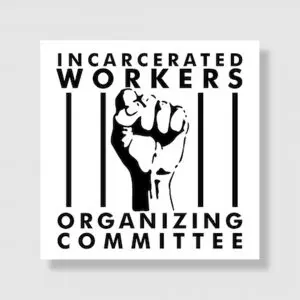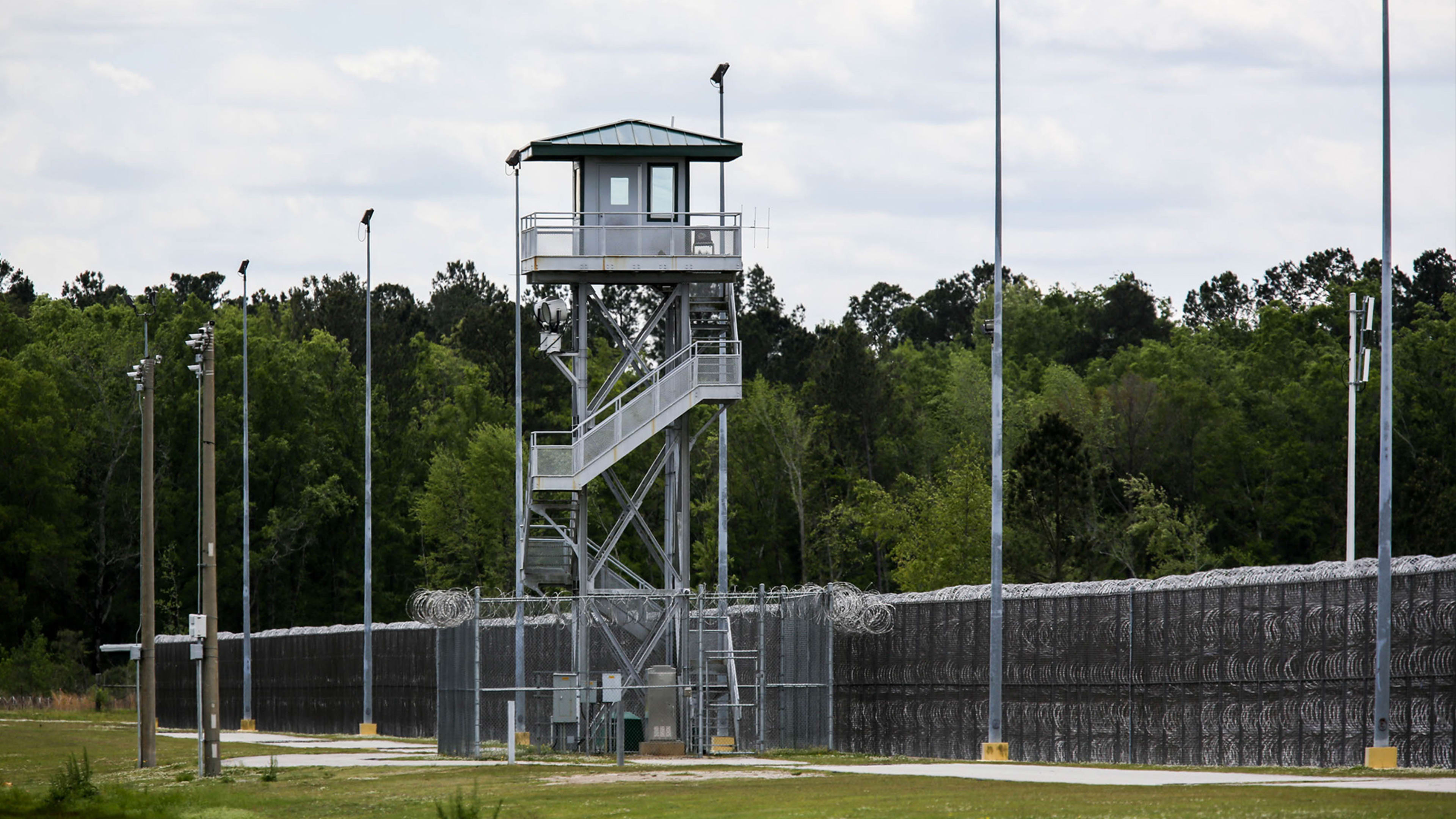From August 21 to September 9, inmates in prisons across at least 17 states, including California and New York, will go on strike. For nearly three weeks, prisoners that have jobs will not work. Inmates will refuse to eat and to spend money within the prison walls. In some facilities, inmates will participate in sit-in protests.
One of the strikers’ key demands centers around the work incarcerated people perform–often forced and always for absurdly low wages. Of the nation’s 1.5 million prisoners, at least half have a job, according to The Marshall Project. In some states, able-bodied prisoners are required to work, and are punished for refusal. The majority of employed inmates work to upkeep the prisons by serving food or cleaning cells. But around 60,000 prisoners nationwide participate in Federal Prison Industries (also known as UNICOR), a government-owned manufacturing corporation that relies on inmate labor to produce everything from military uniforms to license plates. In California, inmates are recruited to help fight the wildfires raging through the state.

If that sounds like slavery, it’s because it is: The 13th Amendment abolished slavery–“except as a punishment for crime whereof the party shall have been duly convicted.” In other words: Slavery conditions are legal when imposed upon prisoners. And because of this clause, the courts consistently rule that inmates are not employees (because if they were classified as such, earning so little would be unconstitutional), and therefore are not entitled to worker protections like injury compensation or the right to organize as a union.
Inmates initiated the strikes in response to the riot in April at Lee Correctional Institution, a maximum-security prison in South Carolina. The riot, in which seven inmates were killed, was according to The Associated Press, the worst in over a quarter-century in the U.S. The violence, organizers say, was spurred on by overcrowding and an under-resourced facility–and sparked nationwide reflection by prisoners on how to use what limited power they have to advocate for change in the system. “It’s a reflection of this capitalistic mindset that the government has,” says Kevin Steele, a formerly incarcerated organizer with the Incarcerated Workers Organizing Committee, which helped coordinate the strike. “They don’t look at incarcerated brothers and sisters as human beings, so they just try to cram as many people into the prisons as possible to get money, and that led to the riot.”
The strike’s organizers, including Jailhouse Lawyers Speak and the IWOC, communicated via mail or phone calls with organizers on the inside, or via visitation when possible, Steele says. They drew up a list of 10 demands, designed to both call attention to the inhumane conditions within prisons, and to offer solutions for amending them. In their list, the organizers call for an immediate improvement to prison conditions and policies for inmates, including creating a “proper channel to address grievances and violations of their rights, and a special emphasis on improved access to rehabilitation services within prisons.
“We’re looking to build better programs within the facilities,” Steele says. For Steele, who was released in January, the Alternatives to Violence Program–an inmate and volunteer-run program within prisons–should serve as an example of a successful program to help inmates prepare for life outside. But alongside that, Steele adds, prisons need to radically improve mental health services on the inside. Right now, he says, “you’re given a pill and told to come back and see a doctor in a month,” but he wants to see the strike call attention to the need for more sustained care that will help inmates transition out of facilities and back into society.
And the focus on labor, too, also highlights another issue in that transition process: The lack of continuity between labor performed within a prison and on the outside. “You could take a mason course in prison and learn to build a whole building, but when you get home, you’re not certified,” Steele says. Recognizing prison labor as legitimate employment should not only lead to higher wages on the inside, but also advancement when employed on the outside (though there are, of course, numerous other barriers for formerly incarcerated people trying to find work after their release). The organizers are also calling for the reinstatement of Pell grants, which fund education for people within prisons. “Because you’re not getting paid for the work that you do inside, these programs do wonders to make education accessible,” Steele says.
By striking, the organizers and inmates want to call for an end to the exploitation of people within prison facilities across the U.S., and they’re doing so by withholding the labor that fundamentally keeps prisons running. Prisons, as Steele says, make a profit by admitting as many people as they can hold, and granting the minimum in terms of pay and resources. That, he says, needs to change. “The government has money, and if we want these places to actually be rehabilitation facilities, we need the funding to provide the resources that will help people,” he says. And it’s fitting that the last of the organizers’ 10 demands is to give voting rights of all people within the system–from pretrial detainees to incarcerated men and women, so that their voices will be heard advocating for the types of policy change that can and should bring these reforms about.
Recognize your brand’s excellence by applying to this year’s Brands That Matter Awards before the early-rate deadline, May 3.
